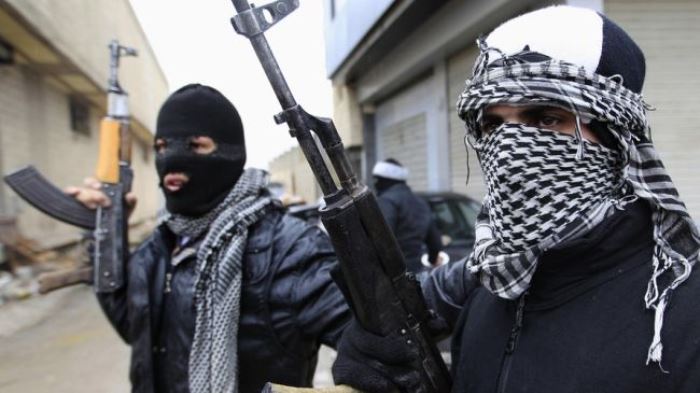Pakistan establishing diplomatic missions in African countries amid rising radical Islamic terrorism

Advertisement
According to Indian security agencies, Pakistan is involved in establishing diplomatic relations and setting up its diplomatic missions in the African countries amid rising radical Islamic terrorism in the continent.
Pakistan has been establishing its diplomatic relations and missions in the African continent at an accelerated pace since 2019, said Indian security officials who are aware of the developments.
The officials said that this factor, when seen with Pakistan’s association with radical Islamic terror groups, can be a cause of concern for India and by covertly supporting the terror groups and strengthening diplomatic relations with these countries, Pakistan can place itself in a powerful position.
The instability in Africa might impact the whole world and the rise of radical Islamic terrorism in the continent will result in New Delhi having to reconfigure its positions on Africa-related issues.
India has been contributing to the United Nations (UN) peacekeeping missions in African countries for a long time and has also either set-up or run military academies in countries like Ethiopia, Nigeria, and Ghana. With an increase in the number of terror-related activities in African regions, India’s role in counter-terrorism building capacity in Africa will further grow.
The objective of most of these radical Islamic outfits is to establish Islamic regimes across the world. India might become a centre of the transaction of workforce and resources for these outfits.
In countries like Somalia and those located in the Sahel region, it is very likely that the terrorist outfits might gain a significant amount of control on governance — if not neutralized.
Notably, the terrorists are also fighting within themselves in Africa and are indulged in a war due to inter-organization revelries and shifting loyalties.
The Islamic State (IS) spread in most parts of Africa by ensuring the defection of terrorists and outfits affiliated to Al-Qaeda (AQ) to its side. In some cases, split groups from AQ affiliates moved to form IS affiliates, despite a large part of their outfits remaining aligned to the AQ.
In the Sahel region, Jamaat Nusrat al-Islam wal-Muslimin (JNIM) and Islamic State in Greater Sahara (ISGS), the affiliates of AQ and IS, are currently indulged in a fight. In most of the cases, JNIM has detained ISGS’s supporters and cut off its fuel supply as well.
The IS and AQ are also indulged in a conflict in Somalia. Numerous instances of violent clashes have surfaced recently and both the outfits have “declared war” against each other.
In the Lake Chad basin, IS and Boko Haram are getting increasingly indulged into a conflict. New differences are also emerging within the IS, with IS central branch and its new branches taking opposite sides. It shows that besides numerous inter-organisational rivalries, there are also intra-organisation rivalries between terrorists in Africa.
It is pertinent to note here that radical Jihadi violence is expanding throughout Africa and spreading to countries which are not overwhelmingly Muslim dominated.
The DRC, Kenya, and Uganda account for 10%, 11%, and 14% of the Muslim population, while, Chad and Nigeria respectively have 58% and 50% of Muslim population. All these countries have become new breeding grounds for terrorists. Moreover, terror groups are most active in these countries in areas which have a concentrated Muslim population.
There are three major roots formal inroads of terrorism in the African continent.
Firstly, terrorism is progressing downwards towards the southern parts of Africa from North Africa (Maghreb), following a horizontal path.
Secondly, there has also been a vertical expansion of terrorism as the geographical focus on terrorism in the Sahel has also been moving towards the coastal West African states.
Thirdly, the Arabian Peninsula has made the Horn of Africa region and Somalia contagious with terrorism.
Besides, one of the major reasons for the growth of terrorism has been the loss of battlegrounds of the IS by the hands of security forces. As the IS lost ground in the Middle East, it moved its resources to Africa and started working to build and strengthen its structure in the continent.
Abu Bakr al-Baghdadi announced in 2016 that the IS had “expanded and shifted some of its command, media, and wealth to Africa.
Countries like Ghana, Ivory Coast, and Togo are also increasingly getting concerned about radical Jihadi activities. Even a country like South Africa is concerned by the spread of terrorism in its neighborhood and is planning to deploy South African Defense Forces to assist Mozambican forces.
Advertisement






